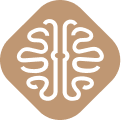Aging Veterans and Post-traumatic Disorder Stress Symptoms
Human development and degeneration pass through different stages. As people age, they are faced with numerous health conditions and diseases. One of the common conditions most aged people have is Post-traumatic Stress Disorder. This is often associated with relapse in memory and flashback of happenings. Veterans with PTSD get triggered with a reoccurrence of specific experiences and react negatively to them. Although PTSD isn’t associated with a mental disorder, it is often classified under this. More so, the disorder can lead to the development of several extreme disorders in the body.
Sudden Intrusive Thoughts
Post-traumatic stress disorder symptoms are many; however, there are some particular to most veterans suffering from this disorder. One of these is the development of sudden intrusive thoughts. Intrusive thoughts and mood swings can be associated together, and they happen immediately after similar activities are done. For example, a veteran healing from a car accident can get scared while driving due to the previous experience.
Frequent Nightmares
Another symptom of PTSD is the experience of frequent nightmares. At some point, everyone has a record of nightmares. Recurring nightmares are even more vivid symptoms of PTSD. According to the United States Department of Veterans Affairs, about 71 to 96 percent of those with Post-traumatic Stress Disorder may experience nightmares. The rate is even higher when the post-trauma life has degenerated to a mental disorder stage.
Circumventing Similar Experiences
Veteran dealing with PTSD tries to steer clear of the similar experiences that resulted in the trauma. This, for them, is a way to avoid a similar reoccurrence. For example, a person injured while riding a motorbike will prefer trekking when no other options are available. This can be dangerous to the health of the person, especially when a long distance is involved. To deal with such people, their companions are advised to seek medical help.
Partial or Total Memory Loss
Another symptom associated with PTSD is total or partial memory loss. A partial memory loss can sometimes occur when the individual suddenly forgets an activity, experience, or important information. A complete memory loss is even more severe as the veteran suffers from a total forgetfulness of everything associated with them. Memory loss is often classified under the effects of brain damage; however, trauma can trigger the partial shutdown of the neuro system.
Sudden Isolation
This may be difficult to detect early enough for an introvert, but veterans with PTSD are often more comfortable when isolated. Sometimes, they try to dissociate from the environment while reminiscing about the experiences related to the trauma. On the other way, they also feel distant when gathered around people discussing.
Self-Blame, Anger, and Irritability
These three signs are common in people who have PTSD. Taking up blames and feeling less of oneself may be a pointer to the development of the disorder. Sometimes, words like ‘I’m the bad one’ should be noted when frequently said. Experts even prefer the words avoided when around these individuals because it may lead to accepting the new environment being created post-trauma.
Less Participation in Hobbies
Everyone loves to participate in an activity, which can even change a mood to the positive side. However, for PTSD patients, it’s the reverse. They suddenly get less interested in their favorite activities and prefer to stay alone. When patients are exposed to the right therapy, they may gradually develop interests in these activities.
Let’s Wrap it Up
As a patient or someone around the PTSD patient, you should be very conscious. An indirect speech or mockery can be a trigger for the disorder. More so, there should be lots of encouragement for the veterans. In extreme cases, experts’ advice should be sought for the necessary therapy sessions.
